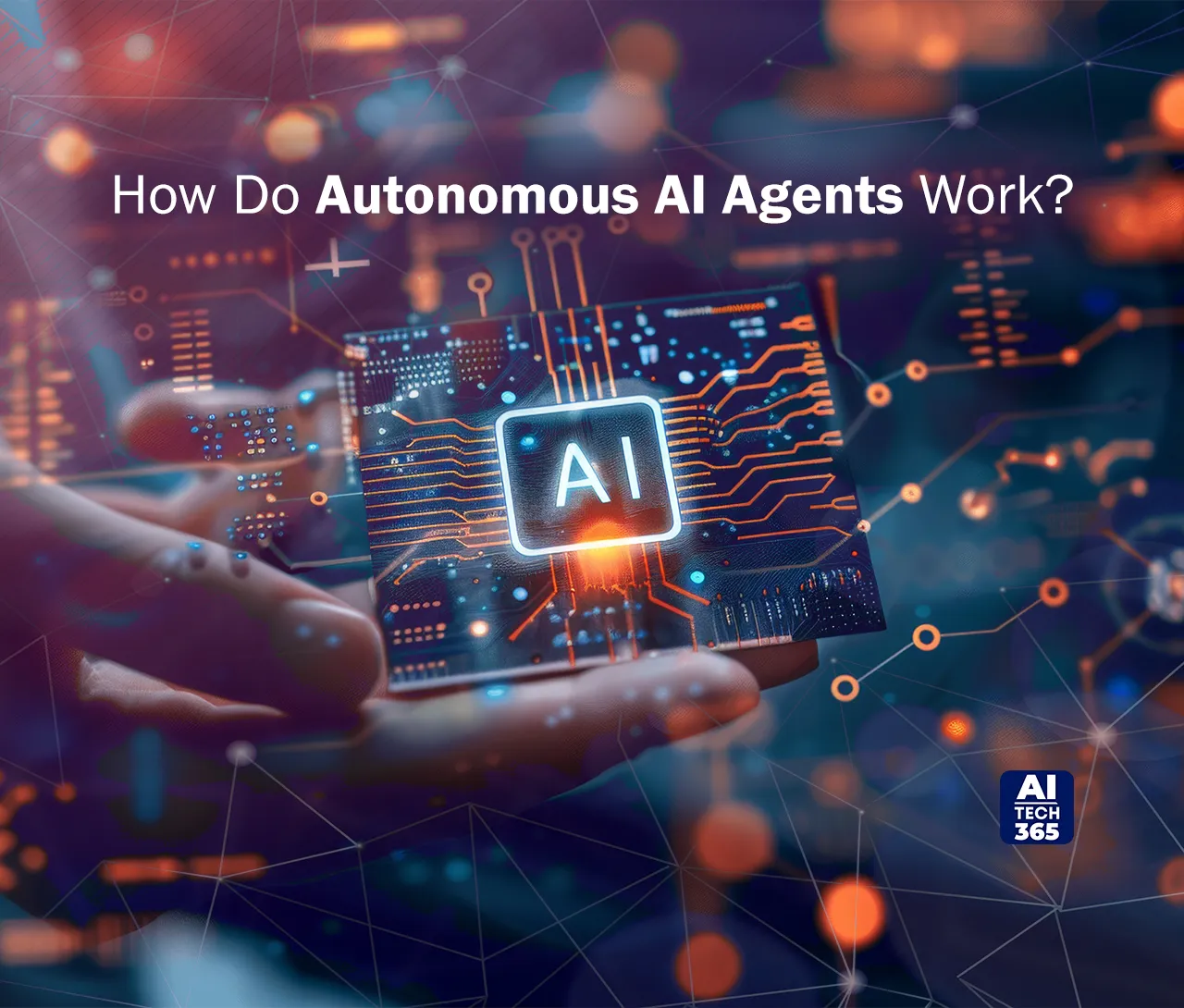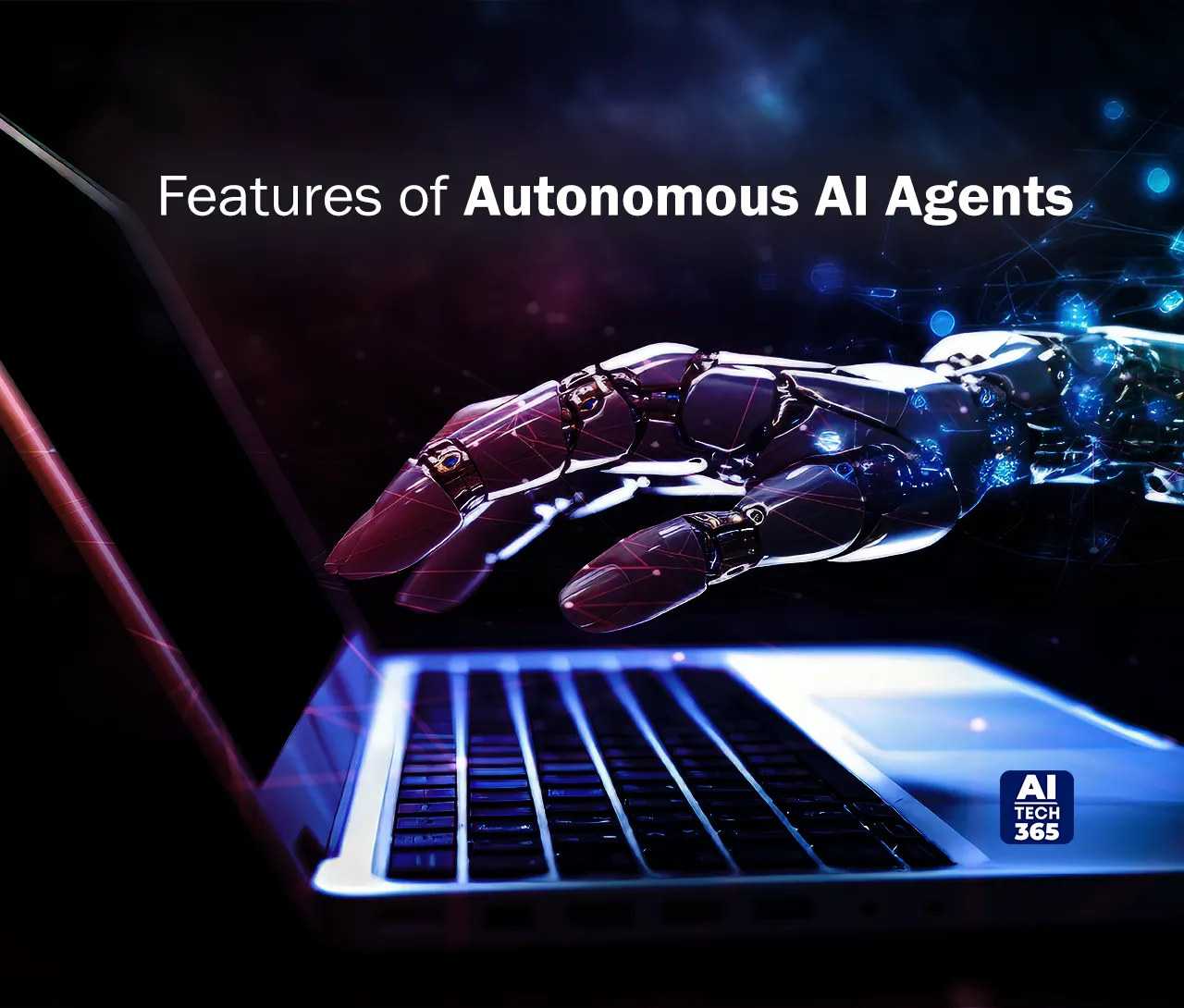Are autonomous AI agents like terminators? No, not yet, at least. If you didn’t understand that reference, drop everything and Google.
ChatGPT, Gemini, Claude, and all other generative AI tools were just the tip of the iceberg. The most-awaited artificial intelligence tool is autonomous AI agents. As the name suggests, these are autonomous programmed tools that can work independently. That means without human intervention.
Just the thought of this is exciting and scary. But, what do they do? Should humans be scared of it? Let’s find answers to these questions and more in this blog post.
What Is Autonomous AI Agents?
AI systems with specialized capabilities known as autonomous agents are capable of carrying out activities on their own, making decisions, and changing their behavior in response to their objectives and surroundings. These agents can prioritize jobs, perform activities alone, and create new tasks as needed because they are made to function without continual human assistance.
Unlike conversational AI tools which are user-facing and aim to facilitate human-like conversations, these autonomous agents are focused on autonomous decision-making and complex task automation.
Some of the autonomous artificial intelligence agents include AutoGPT, SuperAGI, AgentGPT, BabyAGI, MicroGPT, etc.
How Do Autonomous AI Agents Work?
Below is a general breakdown of the working mechanism of AI agents.
- Sensing the Environment: Autonomous agents use sensors to interact with their environment, or they respond to human cues. Depending on what the agent is up to, these sensors could be touch sensors, microphones, cameras, or other fancy gear. Sometimes, the inputs are straight from us humans; an example of this would be the aims and goals for a certain assignment. After processing all of this data, the system makes decisions.
- Information Processing: The agent uses its internal systems to process information after gathering it from the surroundings or our inputs. This entails employing algorithms and computational techniques to analyze data, identify patterns, and make sense of everything.
- Making Decisions: Using the data it has analyzed, the agent “thinks” and chooses how to move forward to achieve its goals.
- Goal-Oriented Behavior: Autonomous agents usually act with predetermined goals or objectives in mind. These objectives may have been programmed into them beforehand, or they may have picked up over time from recollections of encounters and experiences.
Features of Autonomous AI Agents
Here are some of the key features you should know about:
- Learning and Getting Better: These agents can learn from their experiences and improve their performance over time. They can adapt their behavior and decision-making based on feedback and how things turn out.
- Task Management: These agents can create, prioritize, and manage tasks on their own. They can figure out what needs to be done, allocate resources, and change priorities as needed.
- Senses and Awareness: These agents have sensors that help them gather information from their surroundings. They can have cameras, microphones, or other types of sensors, depending on what they’re designed for.
- Making Decisions: These agents use fancy algorithms or rules to make decisions based on the information they gather and analyze. They can weigh different options and pick the best course of action.
- Adapting to Changing Situations: These agents can handle complex and ever-changing situations. They can deal with unexpected stuff and make adjustments to their behavior and decision-making process.
- Collaborating: These agents are capable of communicating and working together with humans or other agents. They can communicate, exchange information, and plan actions together to accomplish shared objectives.
- Versatile and Flexible: These agents can be applied to a variety of settings and tasks. They are situation-adaptable and capable of doing a wide range of jobs, including virtual assistant and task automation.
The goal of this system-driven and user-driven prompt combination is to maximize the assistant’s capacity to improve the text into a more human-like form while maintaining the intent and factual accuracy of the original content.
Also Read: An Overview of Artificial Intelligence (AI) In Networking
Decoding the Applications of Autonomous Artificial Intelligence Agents
- Robotics: AI agents can automate tasks in manufacturing, transportation, and other industries.
- Smart Homes and Buildings: AI agents can control heating, lighting, and other systems in smart homes and buildings to optimize energy use and comfort.
- Transportation Systems: AI agents can manage traffic flow, optimize routes for self-driving cars, and improve logistics and supply chain management.
- Intelligent Personal Assistants: AI agents can help users with tasks such as scheduling appointments, managing email, and providing personal recommendations.
- Healthcare: AI agents can help diagnose, treat, and monitor patients. For example, IBM Watson Health is an AI agent that can analyze medical data to identify potential health issues and recommend treatment options.
Risks of Autonomous AI Agents
Here are a few important risks associated with autonomous AI agents:
- Security Risks: AI agents can be vulnerable to security threats like malicious attacks, hacking, and manipulations by adversaries. Making sure that AI systems are secure and strong is a big challenge.
- Ethical Concerns: AI agents can raise ethical questions, like who’s accountable for their actions, biases in decision-making, and the possibility of unintended consequences. Sometimes, the decisions made by these agents might not match up with human values or have unexpected negative effects.
- Lack of Common Sense and Understanding: AI systems, including autonomous agents, might not have good common sense reasoning or a deep understanding of the world. This can make them misinterpret situations or make decisions that seem irrational to humans.
- Privacy Concerns: AI agents often need data to do their tasks. There are concerns about how these agents might invade privacy or handle sensitive information. It’s important to make sure that data privacy is protected and that responsible data handling practices are followed.
- Safety Risks: While autonomous agents can improve safety in certain areas, there are risks involved in their operation. In complex and changing environments, there’s a chance of accidents or unintended consequences if the agents’ decision-making or behavior isn’t regulated or monitored properly.
- Over-Reliance and Dependency: There’s a risk of relying too much on autonomous AI agents, where humans might rely on them for important decisions without proper oversight or understanding. This can lead to a loss of human control and potential negative outcomes.
Concluding on the Future of Autonomous AI Agents
The emergence of autonomous AI agents holds great promise for revolutionizing various industries. These agents will communicate with consumers in a more human-like manner by utilizing deep learning, advanced NLP, and computer vision. Their combined potential will be increased by swarm intelligence, allowing for distributed task execution and cooperative problem-solving.
Responsible AI governance and ethical considerations will be essential. Autonomous agents will become increasingly integrated into daily life as AI technologies develop, transforming workflows and enhancing human capabilities.





